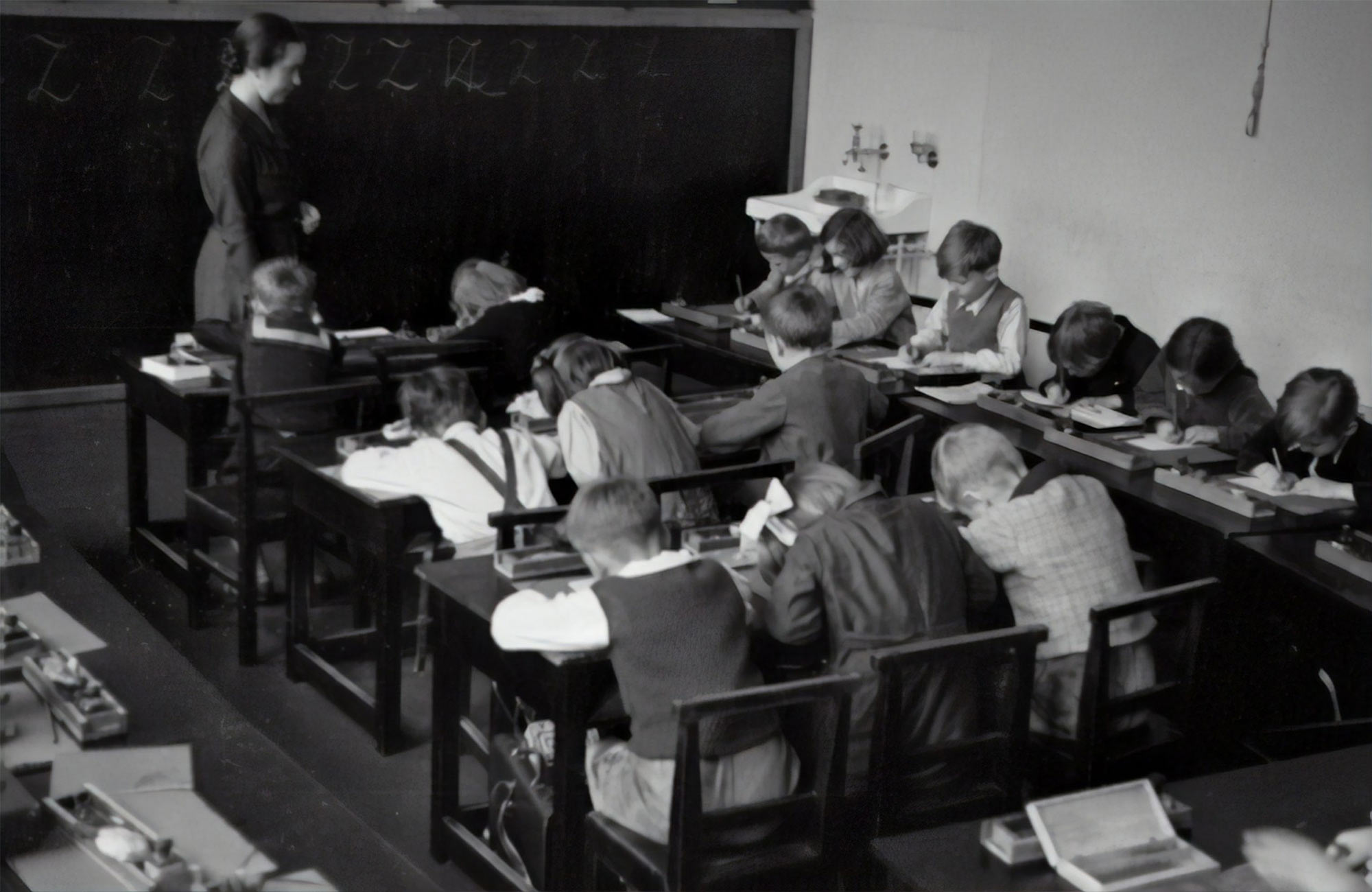
The Purpose of Education in the Age of Artificial Intelligence
By Garrett Smiley
Traditional school is not even preparing students for this modern world, let alone for the bizarre sci-fi future that’s about to knock down our door.
AI is the Swiss Army knife that will replace all other tools. Right now, it’s helping us tidy up our data, proofread our emails, and whip up some stunning graphics. But soon, it’s going to take over entire jobs. One day, a civil engineer won’t just use AI to test their blueprints or create snazzy 3D models like they are now; they’ll just blurt out what they need and get a bunch of ready-to-go projects to choose from. And it won’t stop there. A couple of generations down the line, AI and its robot minions will be the ones building the bridges.

But there’s a catch. In a world where the cost of building new stuff approaches zero, we still must decide how to use our limited resources and attention. Should we demolish the Empire State Building to make room for a giant water park? Do we need a single-payer healthcare system? Should we invade Canada for fun? (Just kidding, Canada. We love you.) These are decisions AI can’t make for us because machines don’t understand what it’s like to be human. They won’t know what it feels like to stroll down a beautiful boulevard, to hear Beethoven’s Ninth, or to lose someone they love. They’ll understand how our bodies work, but they won’t know what it means to be us.
Unfortunately, our traditional education system is setting students up to flounder in this future. It’s cranking out kids who can parrot facts about math, literature, and history, but who don’t have a clue why any of it matters. They see education as a chore, a ticket to avoid trouble, not the collective effort of millions of their ancestors striving for a better life. This traditional approach trades the passion and curiosity of a student for technical proficiency, a skillset soon to be overshadowed by machines. In the future, the “why” will become significantly more important than the “how”.
What the kids of the future really need is the ability to use empathy and logic to untangle complex problems. We need a generation of critical thinkers with the tools to overcome their biases and seek truth.
Thus, while it’s still necessary to learn the fundamentals like fractions, the periodic table, and important historical events so we can understand the world around us and combine ideas into new insights, they must be removed from the pedestal on which traditional education has placed them. If we wish to prepare our students for this brave new world, we must shift our focus from content knowledge to skills like critical thinking, empathy, and agency–and we’ve got to give those as much attention as we currently give to math scores and spelling tests. We’ve got to show students that learning isn’t just about ticking boxes and passing exams. It’s about understanding the world, questioning the status quo, and making a difference. That’s the education our children deserve.

About the author